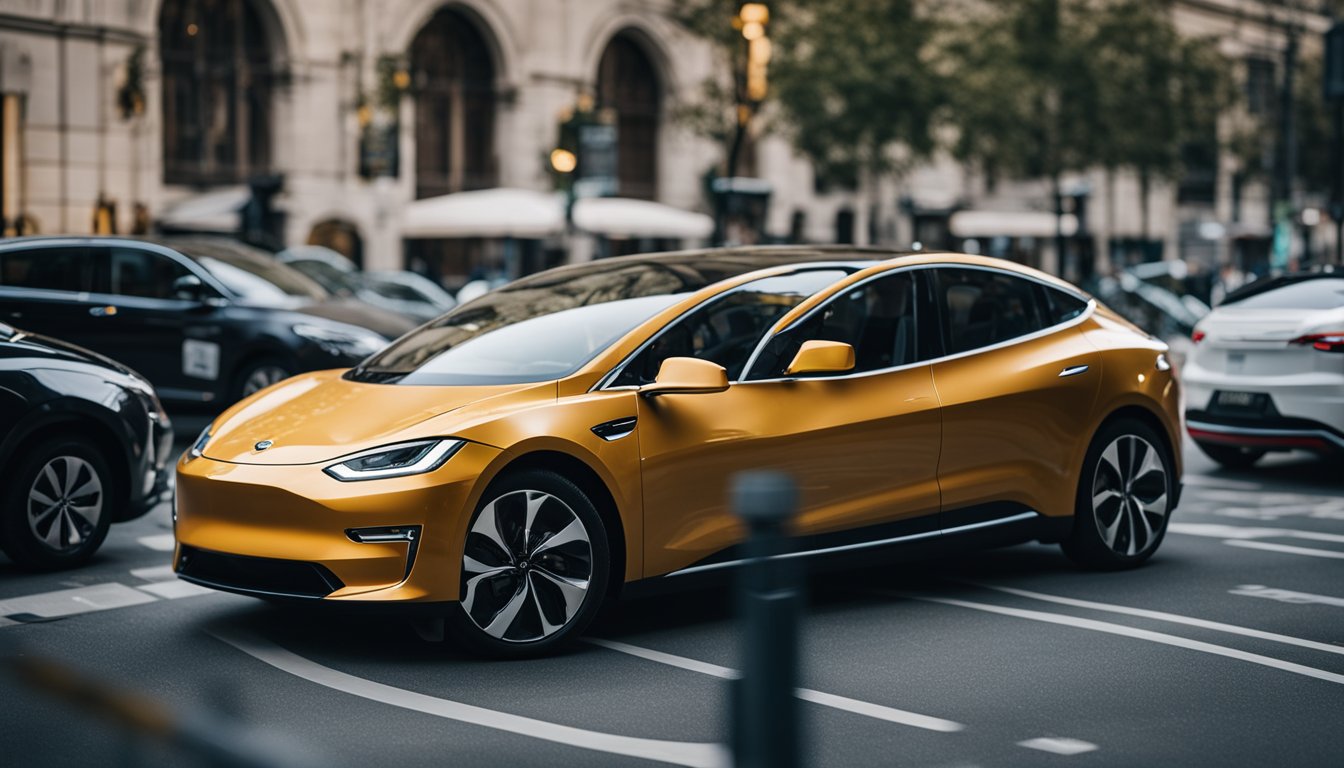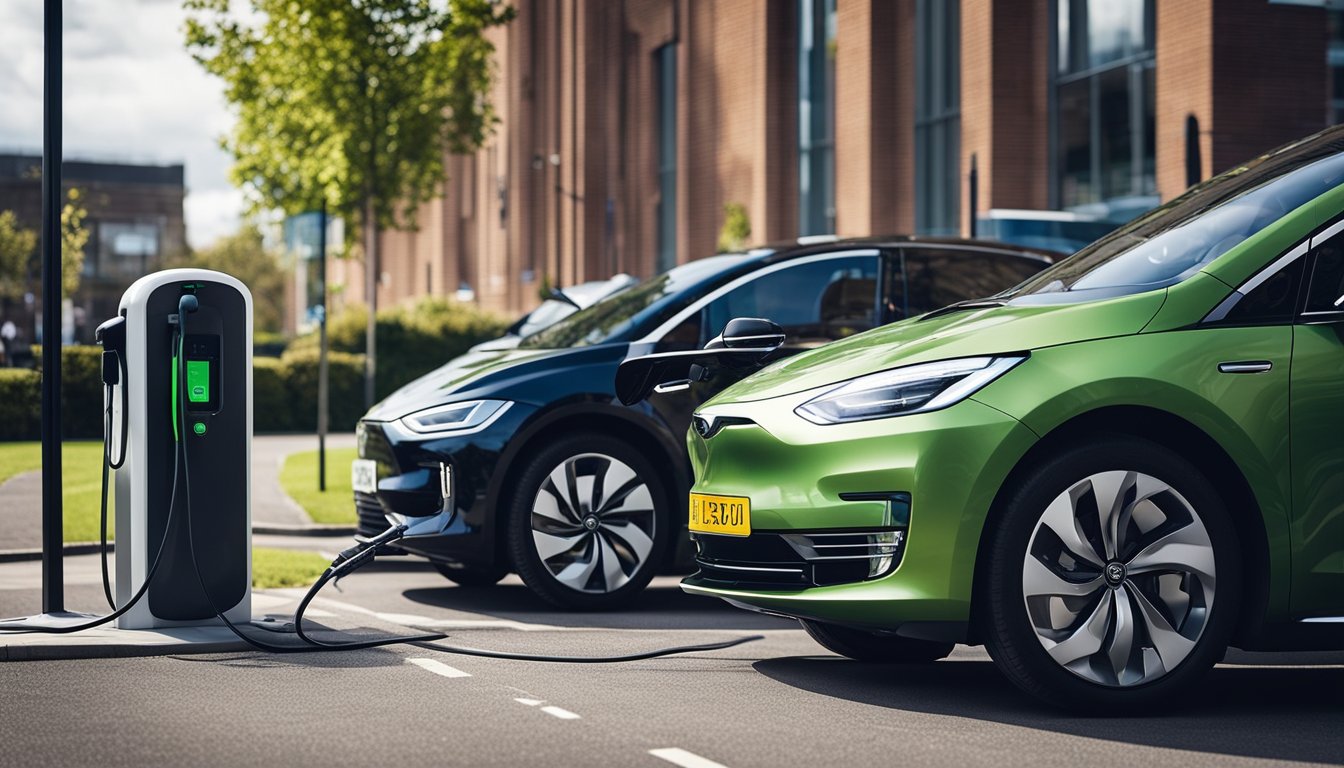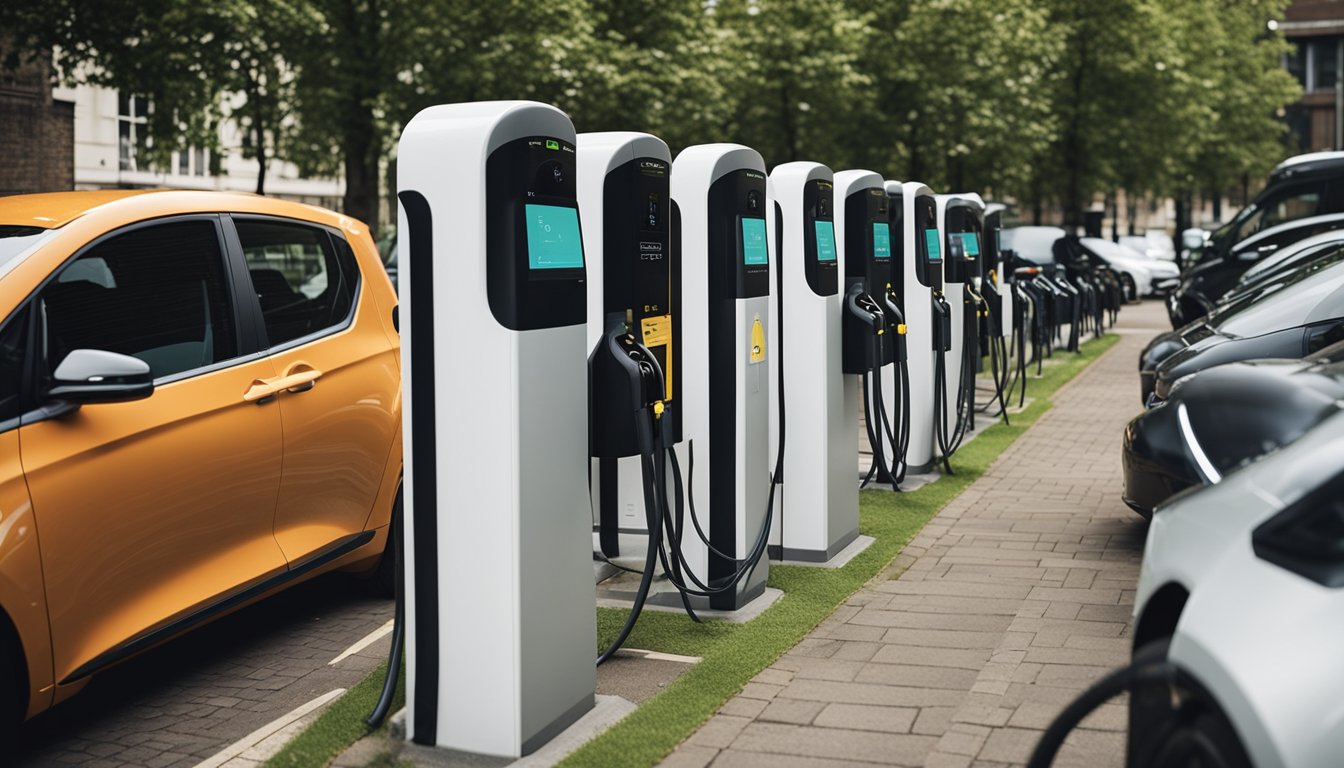Late updated: 20 Feb 2025 15:02
Written by: Amber Collins
Exploring EV Charging Networks in the UK: A Comprehensive Overview
As electric vehicles continue to surge in popularity across the UK, understanding the landscape of EV charging networks becomes essential. With over 30 different public charging networks available, it can be challenging for EV drivers to navigate their options. We explore the main players in the UK EV charging network to provide insight into where and how drivers can efficiently charge their electric vehicles.

Among the prominent networks is Gridserve, known for its "Electric Highway" and high-power "Super Hubs", spread over 200 locations. Chargeplace Scotland, operated by the Scottish Government, stands out with more than 2,000 charge points designed to make EV charging accessible across the country. By delving into these networks and others, we uncover the factors that shape the utilisation and development of charging infrastructure.
For EV drivers, making informed choices about where to charge involves considering network coverage, cost, and speed. Zap-Map offers valuable resources, including a live map to filter networks by area and cost calculators to estimate charging expenses. Through this article, we navigate these complexities, empowering drivers with the information needed to maximise their electric vehicle experience.
Key Takeaways
- Gridserve and Chargeplace Scotland are key players in the UK charging network.
- Network choice depends on coverage, speed, and cost factors.
- Zap-Map provides tools for optimal network utilisation.
Key Players in the UK EV Charging Network
In the UK, electric vehicle (EV) charging networks have rapidly evolved, involving a mix of public and private operators. Notable innovations include ultra-rapid chargers, varied payment systems, and strides towards sustainability and accessibility. Such developments shape the landscape, enhancing convenience for EV owners.
Public and Private Charging Operators
The UK hosts several key players, each contributing significantly to the charging infrastructure. BP Pulse and Pod Point are staples in the market, maintaining extensive networks nationwide.
InstaVolt and Gridserve focus on ultra-rapid charging, reducing charging times significantly. Osprey offers rapid charging points at strategic locations like motorway services and retail parks.
ChargePlace Scotland operates a comprehensive network in Scotland, while Ionity targets high-speed charging along major motorways. Tesla provides its proprietary Superchargers, specially designed for Tesla vehicles.
Innovations in Charging Station Technology
Innovations play a crucial role in advancing charging technology. Many operators, such as Shell Recharge and Fastned, are implementing ultra-rapid chargers, significantly reducing wait times and enhancing user convenience.
NewMotion and Swarco E.Connect are improving charger reliability, adopting smart technology to provide real-time data on charger availability.
Many companies incorporate renewable energy, with MFG EV Power focusing on solar power integration. Wireless charging pilot projects are also underway, promising a seamless future charging experience.
Charging Network Access and Payment Systems
Access and payment systems are crucial for the user experience. Zap-Pay, through Zap-Map, facilitates streamlined payments across partnered networks. Ubitricity and GeniePoint are integrating contactless payments, enhancing accessibility.
Collaboration among networks, as seen with Zap-Pay Partner initiatives, is removing barriers for drivers. Payment flexibility is crucial; many networks now support app-based and card payment options.
The diversity in payment methods ensures a seamless integration into drivers' routines, accommodating varying user preferences and fostering greater adoption of EVs.
Factors Influencing Network Use and Development

In the UK's evolving electric vehicle landscape, several key factors significantly impact the use and expansion of EV charging networks. The expectations of consumers and the economic realities associated with maintaining and expanding these networks play pivotal roles.
Consumer Expectations and Experience
Consumers in the UK expect reliable and accessible charging options as they transition to electric vehicles. Accessibility factors, such as the proximity of chargers and compatibility with vehicles, are crucial. Networks like Source London and BE.EV excel in creating user satisfaction by ensuring readily available stations.
The ease of use, featuring intuitive interfaces and seamless payment options, enhances the user experience. Consumers appreciate clear information on charging speeds and realistic estimations of wait times. Additionally, integrating customer service support ensures that issues are addressed promptly, fostering trust in the network. EV Driver Recommended surveys often highlight charging network satisfaction as a key factor in promoting EV adoption.
Economic Considerations
Economic considerations heavily influence the development of charging networks. Cost and value for money are significant factors for both network operators and consumers. Operators must navigate the financial challenges of developing charging infrastructure while keeping costs manageable for EV drivers.
Programs like MER and Charging Solutions offer insights into balancing infrastructure investment with profitability. Home charging options, facilitated by the affordability and installation ease of home chargers, are also critical. The economic viability of providing fast charging facilities, which can demand more resources and technology, plays into this balance. The EV Charging Survey data suggests that well-considered investment attracts more users, encouraging wider adoption of electric vehicles across the UK.
Frequently Asked Questions

Navigating the electric vehicle (EV) charging landscape in the UK can be complex. In this section, we address key questions about locating charging stations, current infrastructure, home charging options, and more.
How can I locate the nearest electric vehicle charging station in the UK?
One efficient way to find the nearest charging station is by using apps like Zap-Map. These platforms offer real-time data on available charging points, including their types and prices. Additionally, many navigation systems in EVs provide integrated charging location services.
What are the leading electric vehicle charging providers in the UK?
Several providers dominate the UK market. Companies such as BP Pulse, Shell Recharge, and Chargemaster provide extensive networks of charging points. They offer various services, from rapid charging to subscription-based plans, covering a range of customer needs.
How many electric vehicle charging points are currently available in the UK?
The UK hosts a robust network of EV charging points. According to recent data, there are approximately 23,000 public charging stations spread across 15,000 locations, ensuring widespread access throughout the country. This network continues to expand significantly as demand grows.
Are there any regulations to be aware of when using EV charging facilities in the UK?
Yes, there are specific regulations regarding the use of public charging facilities. Users should be aware of time limits, especially for rapid chargers, to avoid penalties. Additionally, understanding payment options, which can vary by provider, is crucial for a smooth experience.
Which EV charging network in the UK offers the widest coverage?
BP Pulse currently offers one of the most extensive networks, providing a considerable number of charging points dispersed across various locations. Other networks like Ionity also provide comprehensive coverage, especially along major motorways, making long-distance travel convenient.
Can you charge an electric car at home in the UK, and if so, what are the requirements?
Home charging is a practical option for many EV owners in the UK. Installing a home charging unit typically requires a dedicated circuit and is often facilitated by grants that reduce costs. It is advisable to seek out certified installers to ensure compliance with safety standards.
